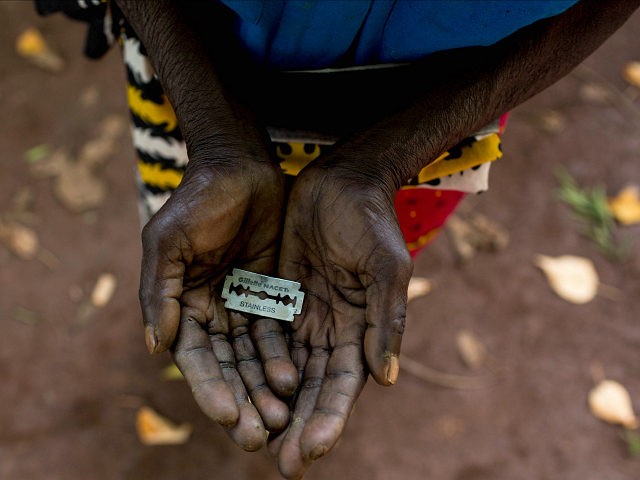The BBC reports that “hundreds of Kenyan girls are preparing to spend Christmas in schools, rather than with their families, fearing that their parents will force them to undergo female genital mutilation (FGM).”
“My parents force us to undergo FGM because they want dowry. When girls are circumcised, their parents have already arranged for them to be married off,” explained 14-year-old Alice Jebet. “When they finish the initiation, their parents introduce them to their husband, whose family gives them cows as dowry.”
The BBC notes that the December holidays are an especially perilous time for girls, as this is traditionally the season for initiation rituals. Although FGM has technically been illegal in Kenya, one in five women between the ages of 15 and 49 are still subjected to the practice, and there has been a surge of mutilations against girls as young as five.
Girls from Uganda, where FGM is also illegal, are reportedly being taken to Kenya for mutilation, which is now sometimes performed by “traditional birth attendants” immediately after birth.
“The many girls who have run away from home because they have been forced to undergo circumcision, but we urge them when they are forced they should report to the local chief,” said anti-FGM activist Selina Kipkerker. “There are some churches here which encourage their followers to circumcise their girls but things are changing, so nowadays they do it secretly.”
Local commissioner Brian Njeru told the BBC it has become difficult to prevent or punish FGM now that the practice has become secretive. All of the schools under his authority have now become rescue centers. He noted a surge of girls enrolling in school since FGM became illegal.
The Daily Nation reports that incidence of female genital mutilation has declined about six percent since 2008 but remains very high among certain communities. Part of the United Nations campaign against the practice involves replacing it with “non-harmful traditional rituals highlighting girls’ initiation into adulthood.”

COMMENTS
Please let us know if you're having issues with commenting.